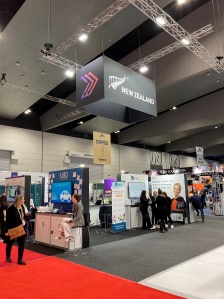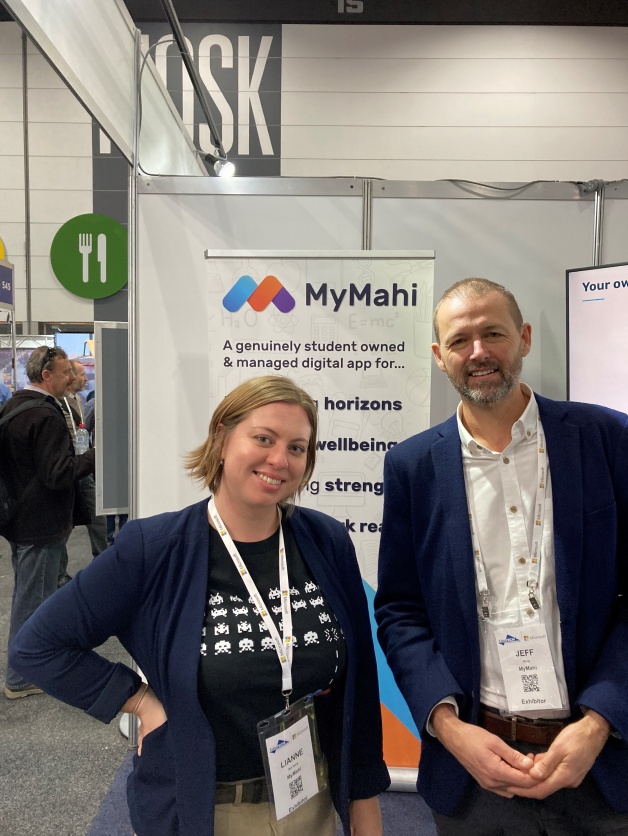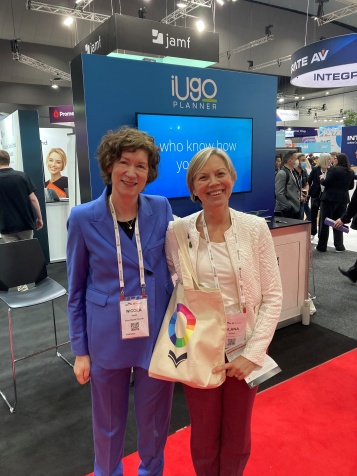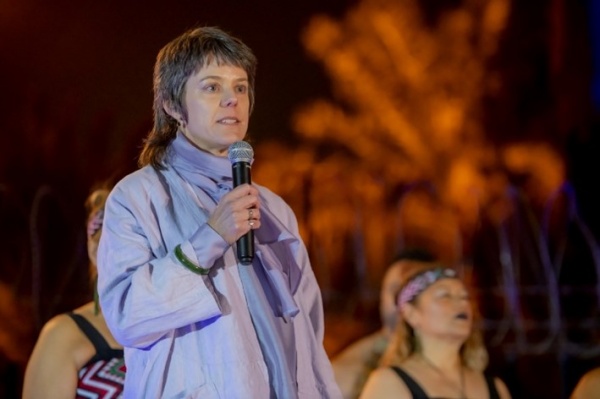Search
Showing 10 of 525 results for group registration
-
Teaching the teachers
The School Influencers Workshop series focuses on new ideas in Early Childhood Education, English Language teaching and educational management and leadership. Originally planned to be delivered in-person, this is the first time the course will be held online.
Members of the UC College of Education, Health and Human Development will deliver the online courses to more than 100 education practitioners and administrators alongside in-market organisations Teach for Indonesia and Teach for the Philippines.
UC Associate Dean (International), Dr Stuart Wise, said “The College of Education, Health and Development at the University of Canterbury is delighted to support this initiative sponsored by Education New Zealand. We are very keen to support our colleagues at Teach for Indonesia and Teach for Philippines are looking forward to the opportunity to engage with course participants and share some of our expertise with them.”
The professional development of teachers has been a key part of ENZ’s South East Asia engagement strategy since 2016.
“The School Influencers Workshop series gives teachers and administrators a taste of New Zealand’s top-quality education by offering an insight into our hands-on teaching methodologies and contact with top academics,” ENZ Market Manager Indonesia, Malaysia and Philippines, Desiree Lee, said.
“Teachers, counsellors and school leaders remain a key group of influencers in a student’s study journey. They are an important group which ENZ will continue to engage as the international education sector recovers from COVID-19.”
Read the UC story on the Schools Influencers Workshop series
-
APAC TVET Forum: Bringing us together
The inaugural Asia Pacific Technical and Vocational Education and Training Forum will be held online on the first two Fridays in November 2021. The event – themed “Bringing us together” – will allow people in the sector to share best practice and foster new connections despite COVID-19 travel restrictions.
The APAC TVET Forum will be opened by New Zealand’s Minister of Education, Chris Hipkins, and will feature an address by the Chief Executive of Te Pūkenga New Zealand Institute of Skills and Technology, Stephen Town.
The forum is driven by partners Te Pūkenga, Education New Zealand and Skills Consulting Group.
ENZ Chief Executive Grant McPherson says with an increasing emphasis on applied learning and work-ready graduates, the applied vocational sector in Aotearoa New Zealand has much to offer.
“A New Zealand education produces in-demand graduates with the skills and knowledge they need to join the workforce with confidence,” Mr McPherson says.
The APAC TVET Forum will bring together experts from the three sectors vital to effective technical and vocational education – government, industry and education. It will offer government-to-government, business-to-business and system-to-system content streams – bringing people together for a cross-system conversation.
There is no cost to register for forum sessions on 5 and 12 November, and there are networking opportunities and sessions on the days in between.
The international heft will come from speakers including Professor Christina Hong, President of the Technological and Higher Education Institute of Hong Kong and Marc Gomes, Group Senior Vice President and Head of Training for ADECCO Global.
The Pacific representatives include Dr Isimeli Tagicakiverata, Director of the National Training and Productivity Centre at the Fiji National University, who is presenting on upskilling, reskilling and lifelong learning as part of the system-to-system content stream.
The APAC TVET Forum builds on the strong foundations of the Sino-NZ Vocational Education and Training Model Programme, a forum for sharing best practice that is widely acknowledged as beneficial to both countries. Under this programme, Chinese and New Zealand institutions have taken turns to host the annual New Zealand-China Higher Vocational Education Conference.
China’s Central Institute of Vocational and Technical Education – a China Ministry of Education thinktank – has supported and presented at the previous conferences and will deliver a keynote presentation at the APAC TVET Forum.
Wherever we live in the world, a thriving future is what we all want. Governments, industries and educators are all working together to upskill and reskill workforces disrupted by the pandemic. The APAC TVET Forum is a chance to be part of the solution. To register or find out more, go to www.apactvetforum.com.
-
Diversity and inclusion in North America
“Partnering with marginalised communities around us to confront harm in our past is something we all have to practise,” says course co-ordinator David Wick, Associate Professor, Middlebury Institute of International Studies.
"What was striking was that, from the first in-person meetings, everyone was willing to make personal connections to the content, share their own learning and vulnerabilities, and very curious as to how they can learn from one another to create better learning environments.”
Diversity Abroad, based in US, is the largest organisation focused on diversity, equity and inclusion in international education. ENZ works with Diversity Abroad on a range of initiatives, such as the annual Global Inclusion Conference, as well as partnering to deliver the specially designed course.
Attended by 18 people from NZ universities and ENZ, the three-month certificate course was fully online. Workshops, group discussion, videos, articles and assignments kept the participants highly engaged, and feedback on the course was very positive.

Dr. Anna Foster, Study Abroad and Exchange Manager at the University of Canterbury, says the programme provided a comprehensive exploration of Access, Inclusion, Diversity and Equity (AIDE) in relation to student mobility.
“The programme was really valuable in gaining a deeper understanding of AIDE as it relates to Education Abroad, particularly due to the focus on considering every aspect of the student mobility journey in an end-to-end approach from the perspective of diverse cohorts,” Anna says.
“This has certainly influenced our team approach on an ongoing basis - it has shaped many of the continuing conversations we have around our outreach and processes, and has also helped us consider how we can further partner with both external and internal partners to better support our students.
“I think all of the group also found the programme to be impactful from a self-reflection perspective, prompting some really useful reflection on the backgrounds, biases and perspectives that shape each of us and how we can use this awareness as leaders and in our work with students.”
Anna also appreciated the practical focus of the course, and says her team is now considering some of the barriers to outbound mobility for diverse and under-represented cohorts, and working on strategies to address these.
Sarah Sung, Study Abroad Manager at the University of Auckland, also found the programme very beneficial.
“The programme has given me opportunities to delve into every single aspect of our team’s work through AIDE lenses as well as reflect on our past initiatives relating to diversity and inclusion. I learned that to make diversity work, AIDE should not be seen as a stand-alone project or matter but be embedded in our everyday life and all work,” Sarah says.
Sarah says AIDE conversations will be part of regular team meetings, as well as being integrated into team members’ KPIs and performance reviews, and she is working on a plan to increase participation from under-represented students.
“This includes extensive work in identifying opportunities to collaborate with partners for diversity and inclusion goals, reviewing our scholarship, communications and co-curricular programming for diverse students and developing a system for data collection.”
Lewis Gibson, ENZ’s Field Director North America, also took part in the course and says feedback from the cohort participants demonstrates the need for further AIDE learning in the New Zealand international education sector.
“Hearing from colleagues about the personal and professional measures they are actively putting in place to support under-served inbound and outbound students, as a direct result of this programme, is inspirational,” he said.
For more information about the International Education Diversity & Inclusion Certificate, contact Lewis Gibson at Lewis.Gibson@enz.govt.nz
-
Around the world in five - May 2022
International
NZ: fully open on July 31 and post-study work reforms announced
New Zealand to continue below Year 9 recruitment as government backs down
NZ consults on new strategy and plans promotional tour of Americas
New Zealand aims for 'high value' and diversity in refreshed strategy
New Zealand international education renews outward focus
Chinese student flows tipped to peak within five years
New Zealand
Chris Hipkins wants to diversify countries international students come from
International students group respond to 'backdoor to residency' comment
Long distance life: Three students navigating the pandemic far from whānau
International student market unlikely to recover quickly, agents warn
Chile
Learn about the benefits of traveling to New Zealand with the visa to study and work
China
China: Could lockdown fatigue influence outbound student mobility?
India
India simplifies procedures for foreign institution partnerships
Thailand
United States
Chris Hipkins wants to diversify the countries where international students come from
NZ consults on new strategy as gov’t plans promotional tour of Americas
Viet Nam
New Zealand ready to welcome Vietnamese students back two months earlier
-
Two new sector-facing leadership roles at ENZ
GM Sector Engagement
We look forward to welcoming Wendy Kerr to Education New Zealand Manapou ki te Ao (ENZ) on 3 October 2022. Ms Kerr will take up the newly-created role of General Manager, Sector Engagement.
Joining us from fintech Valocity where she was Global Chief Operations Officer, Ms Kerr has rich experience in both education and commercial businesses globally.
Prior to Valocity, she was Director of the Centre for Innovation and Entrepreneurship at the University of Auckland. She led the team there to transform the Centre and enabled the University to be recognised as Entrepreneurial University of the Year in the Asia-Pacific.
Ms Kerr is also Board Director for The Icehouse and sits on the Board of Epsom Girls Grammar. Previous roles include General Manager for Pearson PLC London, and Asia-Pacific Marketing Manager for Apple. She has been a TEDx speaker and has published a number one bestseller on Amazon - ‘Corporate Crossovers’. Ms Kerr has a Ngāti Mutunga and Moriori heritage and will be based in our Auckland office.
The Sector Engagement group delivers strategic initiatives in partnership with sector partners and stakeholders, undertakes business development, and designs and delivers new products and services.
GM Sector Services
 Sahinde Pala was recently appointed to the newly-created role of General Manager, Sector Services.
Sahinde Pala was recently appointed to the newly-created role of General Manager, Sector Services.Ms Pala joined ENZ in 2016 after 18 years working for a multinational group of English language schools. With a career dedicated to international education, she brought extensive private sector experience in international marketing, stakeholder engagement and student experience delivery to the organisation.
Ms Pala has held a number of roles at ENZ working with education providers, government stakeholders, regional groups, peak bodies, students’ associations and community groups. She was heavily involved in developing the International Student Wellbeing Strategy.
With a passion for delivering an excellent customer experience, Ms Pala will be leading the newly formed Sector Services team to deliver a suite of products and services that support the sector to rebuild and thrive. This includes student experience, global citizenship, global events, and agent engagement, as well as scholarships to support domestic students to have an international education experience, and international students to study in New Zealand.
Sahinde is based in our Auckland office and spends her time outside of work standing on the sidelines of sports fields supporting her young boys.
View all senior leadership team members here.
-
Australian fair offers global gateway for Kiwi Edtech
 Although Australia is not a traditional student attraction market for New Zealand, its proximity to us as well as its size, recent digital education reforms in the wake of COVID 19, and its links to the rest of the world, create opportunities for our education technology products and services community.
Although Australia is not a traditional student attraction market for New Zealand, its proximity to us as well as its size, recent digital education reforms in the wake of COVID 19, and its links to the rest of the world, create opportunities for our education technology products and services community.This was the first time ENZ participated with edtech companies as a group in this two-day conference and expo. With more than 11,000 attendees, 250 speakers, 250 exhibitors and 10 sub conferences (including one on edtech innovation,) EduTECH 2022 is the most comprehensive cross-sector event for education in the southern hemisphere. It brings together ‘educators and solution providers to exchange and explore ideas, techniques, and technology, with the aim of improving teaching, training and learning and raising the education standards in Australia and the world.’
ENZ worked closely with New Zealand Trade and Enterprise (NZTE) to maximise the overall impact for New Zealand Inc from the event, with both organisations supporting edtech companies to take part.

EdPotential General Manager Charlie Tomlinson
Six of NZTE’s focussed edtech customers (Orah, iUgo, Hero, Banqer, StepWeb and EdPotential) were hosted in a NZTE Pavilion at EduTECH. ENZ also supported seven edtech companies keen to explore opportunities in Australia: Learn English Live, Chasing Time English, Language Fuel, ByteEd, Kai's Education, Pacific Kids' Learning and TTRO. Two other New Zealand companies, Education Perfect and MyMahi, also participated independently.

Lianne & Jeff King, Co-founders of MyMahi
In the spirit of collaboration, ENZ hosted an event at the NZTE Pavilion that enabled all 15 companies to connect with a number of Australian education providers as well as with NZTE, to share ideas and insights about edtech opportunities for New Zealand in Australia.
ENZ’s delegation also took part in the local Australian Education Technology Association’s ‘Pasta with Peers’ informal dinner, an opportunity to connect with over 200 Australian edtech founders and CEOs.
“I found the conference really valuable - we actually picked up a series of Indigenous schools to connect in with our Indigenous programme for next year so that was great,” says Will Clarke, Learn English Live co-founder and director.
“EduTech Australia is where it’s happening this week! Lots of information to absorb and great insights on all things edtech! It’s been awesome meeting and spending time with like-minded people who are working hard to build their businesses and brand outside of NZ. With the support of ENZ and the introduction to the NZTE team here, the future looks bright for Pacific Kids Learning,” says Evo Leota-Tupau, founder of Pacific Kids Learning.
Aotearoa’s edtech community is increasingly being recognized for the valuable contribution it makes to international education around the world, says Alana Pellow, Business Development Manager at ENZ.

iUgo Founder and Managing Director Nicola Smith with ENZ's Alana Pellow
“For example, it was great to see two edtech companies being included in the Prime Minister’s recent trade mission to Australia, while several edtech exporters featured in Minister Hipkins’ recent international education engagements in the Americas.”
Following ENZ’s successful participation in EduTECH2022, Ms Pellow is keen to explore further opportunities to bring the collective energy and momentum of the edtech sector together, to support its contribution to international education and the outcomes for learners.
More information:
- Aotearoa EdTech Excellence white paper 2021, developed by EdTechNZ in partnership with ENZ, says that more than 90% of New Zealand edtech businesses export or have ambition to export, with the main markets being the United States (26%) and Australia (24%).
- Education 2030 , a report by HolonIQ, includes predictions about the future growth of the global education market and the role of technology.
- Australia Perception Research 2022 | New Zealand Story Group (nzstory.govt.nz), a webinar by NZStory, suggests Australia is one of the most accessible international markets for New Zealand businesses to enter, and highlights Australia’s growing admiration for the values it perceives New Zealand represents – particularly our leadership and indigenous journey. Our te ao Māori values of manaakitanga and kaitiakitanga resonate deeply with both Australian consumers and businesses.
-
From the CE: Building back New Zealand’s international education experience
One of the highlights for me was experiencing a warm Southern welcome in Christchurch and Dunedin, in late August. It was useful to hear from a cross-section of key education providers and other education-related organisations about what’s top of mind for them. There was an opportunity to hear about their plans for the year ahead and discuss what’s being planned at Education New Zealand Manapou ki te Ao (ENZ), and how we can best support each other.
People expressed cautious optimism about inbound student numbers for 2022, saying they have adequate applications in the pipeline to be comfortable with progress (as much as 50% of pre-pandemic levels for some). They mentioned that the fourth border exception group of international students, Cohort 4, is having a positive impact on student numbers. Many of the recent arrivals had started their studies with New Zealand online in their home countries – a testament to the huge effort made by providers, with support from agents and our international teams, to continue reaching out to students and offering online study options while our borders were closed.
The visit ended with a Christchurch City Council and ChristchurchNZ mayoral welcome for around 140 tertiary international students, from across the wider Christchurch region – a memorable evening.
Another successful welcome for international students took place in September, hosted by the University of Auckland. Both Prime Minister Jacinda Ardern and Education Minister Chris Hipkins spoke at the event, in a clear demonstration of the government’s commitment to international students and international education.
This week I returned from a short visit to London and Barcelona, as part of ENZ’s plans to revisit all our key partner countries now our borders have reopened. The timing coincided with the annual EAIE Conference and Exhibition in Barcelona, which attracted more than 6,300 participants from over 90 countries. EAIE is the largest business-to-business conference and international education event in Europe. It provided a great opportunity to reconnect with key partners and other contacts, and to continue to let them know we are open to welcome students. You can read more about New Zealand’s pavilion at EAIE and the providers who took part in this month’s E-News.
In London, I had a series of meetings with key government and education sector contacts, including Professor Sir Steve Smith, the UK Government International Education Champion. A range of opportunities were discussed during these meetings, and we will follow up on these with the sector in New Zealand. I also met with journalists to promote a New Zealand education, including Times Higher Education and StudyTravel magazine. The final engagement of the London trip before heading off to Barcelona involved presenting an award at the PIEoneer Awards ceremony. The four awards won by New Zealand organisations that evening are covered later in this issue.
Finally, I’d like to thank everyone involved in the Asia Pacific Technical & Vocational Education and Training Forum, which took place from 14-15 September 2022. This online event, which is run in partnership between Te Pūkenga, Skills Consulting Group and ENZ, attracted more than 2,000 delegates from 60 countries, and has resulted in significant positive feedback.
In the spirit of Te Wiki o te Reo Māori I’d like to end with a whakataukī that highlights the importance of language:
Kia kaha, te reo Māori - Let’s make the Māori language strong!
Ngā mihi nui,
Grant McPherson
-
ENZ calls for funding proposals for New Zealand-China research partnerships
The New Zealand-China Tripartite Partnership Fund 2023 offers funding of up to NZD 20,000-30,000 for each partnership project, with the call for proposals open until 1 March 2023.
Funding proposals are due by 1 March 2023. Download the New Zealand-China Tripartite Partnership Fund 2023 Guidance and Call for Proposals and the Proposal Form. Send your completed proposal as a PDF, and any questions, to china@enz.govt.nz.
The fund supports new or existing research partnerships between New Zealand and Chinese universities. There are usually three universities involved – two from China and one from New Zealand.
The Tripartite Partnership Fund, administered by ENZ, has a pool of up to NZD 100,000 in 2023 for research partnerships in the arts, humanities, social sciences, sciences and applied sciences. Designed to encourage strategic academic relationships, it supports the creation or development of the partnership rather than funding the research itself.
With the global Covid-19 pandemic restricting some international travel, the fund welcomes innovative ideas. Current investments include digital technology services, communications platforms, translation costs and journal access.
At the recent New Zealand-China 10th Joint Working Group held on 22 November, senior officials at the meeting noted the value of Tripartite research relationships and the impact of having funding from both governments to establish new partnerships or nurture established research collaboration. Li Qing, Deputy Secretary General China Scholarship Council, remarked on the benefits of both student mobility through scholarships and closer research links such as the Tripartite Partnership Programme. The co-chair of the Joint Working Group, Vice Minister Tian Xuejun, stated in his closing remarks that China and New Zealand should continue to strengthen existing cooperation activities, listing the Tripartite Partnership Programme as one of the initiatives.
Lisa Futschek, General Manager International, reinforced ENZ’s commitment to administering the fund.
“We remain committed to the Tripartite Partnership Programme and its valuable contribution toward stronger global connections, research links and partnerships – key goals under the revised New Zealand International Education Strategy, launched by Minister Hipkins in August this year. We look forward to many more partnerships under this programme.”
Established in 2005, the Tripartite Research Partnership is a valued part of the New Zealand – China bilateral education relationship and we welcome proposals from researchers to join the growing list of funding recipients.
Funding proposals are due by 1 March 2023. Download the New Zealand-China Tripartite Partnership Fund 2023 Guidance and Call for Proposals and the Proposal Form. Send your completed proposal as a PDF, and any questions, to china@enz.govt.nz.
-
Student Ambassadors build global citizenship skills
Since it was set up in 2021, the programme has involved around 85 secondary and 50 tertiary students in six participating regions – Northland, Auckland, Tauranga and Western Bay of Plenty, Hawkes Bay, Whanganui and Wellington. Northland acted as national coordinator.
“International students can sometimes find it difficult to connect with locals, make friends or venture outside their campus,” says Sahinde Pala, GM Sector Services at Education New Zealand Manapou ki te Ao (ENZ).
“Language and cultural barriers, hesitation to meet new people, lack of knowledge of opportunities off campus, or budget constraints – many factors can play a part. The emergence of Covid-19 and lockdowns made it even more important to address these challenges, and so we worked with a range of people, including regional partners and Welcoming Communities, to develop the student ambassador programme.”
The programme has developed differently in each region, but with the same shared goals. Another common factor has been the training provided for student ambassadors – the opportunity to complete a New Zealand Global Competence certificate, training in social media, and specially tailored training provided by ISANA NZ.
“Student ambassadors are bridgebuilders and leaders, who create opportunities for students from different cultures to form relationships and learn about each other,” Ms Pala says.
“The ambassadors themselves also gain from the programme, by developing their understanding of cultural differences and learning new skills and strategies that are valued by employers. And regional communities benefit when international students feel valued and connected – they are more likely to remain in the area or recommend it to others.”
The ISANA NZ Student Ambassador Training explores intercultural concepts in an interactive and engaging format that can be run online or in-person. Participants are then able to apply their learning to develop activities and events that help students to connect with the wider community. Debrief sessions towards the close of a programme cycle support students to reflect on what they have learned from being a student ambassador.
“I enjoyed learning about how communication works between different cultures, going over cultural values and how some are visible and invisible and learning top tips to help me improve as an ambassador” – student feedback.
“Our Northland student ambassadors joined the ISANA workshop as a group of excited students interested in global citizenship and finished as a tight knit group of inter-cultural leaders in the school community. They learnt to work together, giving everyone a chance to contribute and respecting each other’s perspectives. The communication and planning skills honed in the workshop, enabled them to run a large-scale ‘Matariki Kai Festival’ event, introducing a range of food from cultures across the school to the students.” – Jo Lees, National Ambassador Coordinator and Project Manager at Study Northland.
Other activities sparked by the programme in different parts of New Zealand have included a Kiwi Cooking Class, an Auckland Weekly video series, international languages week events and Matariki events organised and run by the ambassadors, diplomatic events attended by ambassadors from other countries and an International Students Issues Panel Discussion.
One of the student ambassadors was recently profiled by ENZ: Michael Ren – Award-winning app designer eyes a future in tech | Education New Zealand (enz.govt.nz)
Several regions have indicated they hope to continue their student ambassador programme beyond 2022: Northland, Tauranga and Hawke’s Bay.
“This student ambassador training is much needed, not only for the international education sector but also across wider communities in New Zealand. In fact, I think everyone could benefit from this training if they have not received similar training before in intercultural communications and leadership,” says Wenhua Yang, Regional Manager at Learning Hawkes Bay.
To learn more about the ISANA NZ Student Ambassador Training, please contact: caroline.stevenson@isana.nz
-
Growing New Zealand’s education connections in the Middle East
ENZ participated in the re-opening ceremony and stressed the importance of education connections between New Zealand and Saudi Arabia to a 300-strong audience.
A rousing performance of ENZ’s waiata – Manapou ki te Ao – by Ngāti Koraha, a kapa haka group based in Dubai, supported the embassy’s re-opening ceremony.
The event took place in the same week that University of Otago alumna, Rayyanah Barnawi, made the news as she is set to be Saudi Arabia’s first woman astronaut in space when she travels to the International Space Station later this year.
The visit was a useful opportunity to engage on education with Saudi Arabian government officials and to discuss G2G opportunities with NZ Inc agencies in the wider Middle East region.
ENZ’s Senior Advisor for the Middle East, Bronwyn Shanks, said the visit has been valuable in the way it has helped ENZ to lay the groundwork for an education delegation to the Middle East, including Oman, the United Arab Emirates, and Saudi Arabia in May.
“We understand the significance of the Middle East region for our education sector, particularly Te Pūkenga, universities, English language schools and edtech companies.
“We’re building knowledge and connections on the ground that can help open doors for New Zealand education providers looking to grow their links in the region and look forward to supporting them with a high-level education delegation visit.”

ENZ’s Bronwyn Shanks speaking at the New Zealand Embassy re-opening event, with Ngāti Koraha kapa haka group in support
Alongside the embassy’s re-opening event in Riyadh, ENZ and representatives from the University of Waikato and the University of Auckland met with Saudi government connections, including the National Institute for Educational Professional Development (NIEPD), Technical and Vocational Training Corporation (TVTC), Ministry of Culture, and Ministry of Tourism.
The discussions’ focus was on how New Zealand education providers could support Saudi Arabia’s efforts towards upskilling their young people under Vision 2030.
“It was great to meet some of those young alumni hosted by the University of Waikato and hear about the positive impact their New Zealand education experience continues to have now they are back in Saudi Arabia,” Shanks said.
ENZ and the University of Waikato also visited the University of Wollongong in Dubai, one of a network of study centres under university consortium NCUK, with which ENZ and all eight New Zealand universities have a partnership agreement to provide in-country foundation programmes.
Education providers interested in knowing more about education engagement in the region can contact ENZ’s Senior Advisor for the Middle East, Bronwyn Shanks, on bronwyn.shanks@enz.govt.nz.

